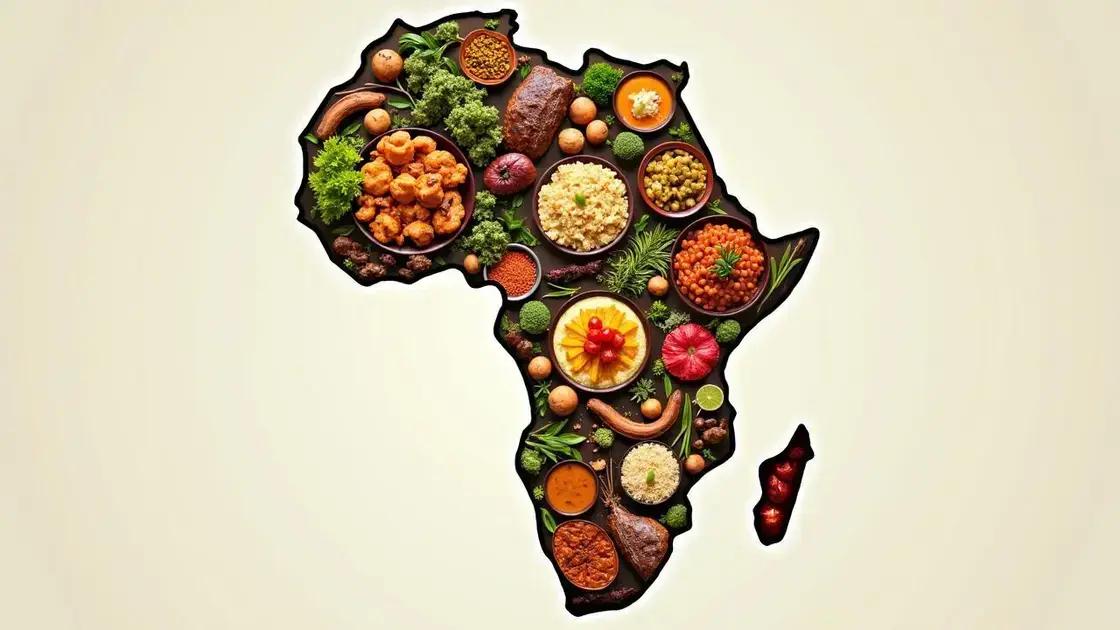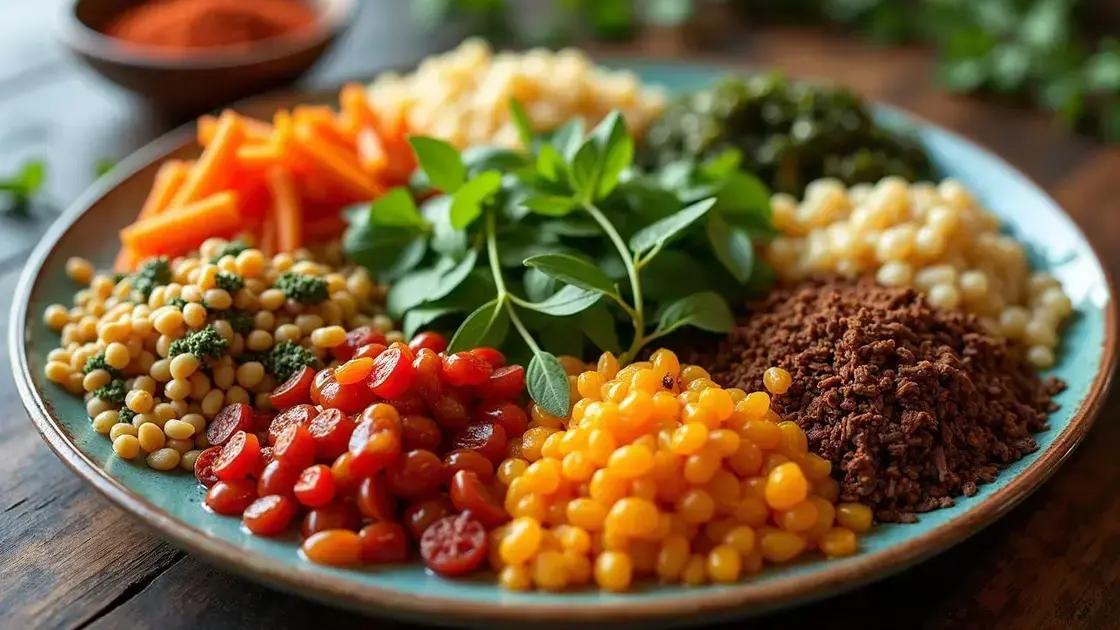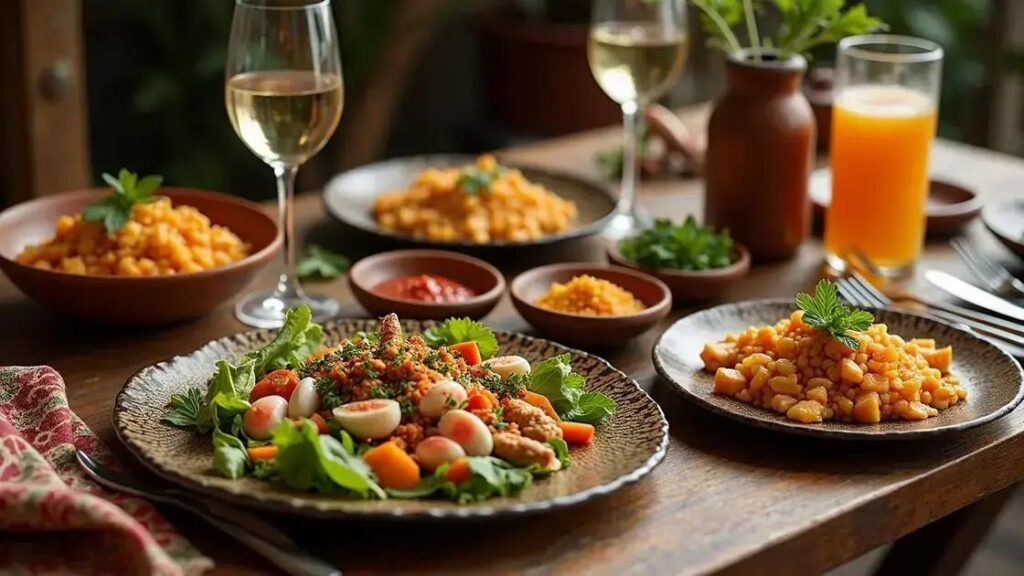The question, “Does the African Recipe work for everyone?” highlights the rich diversity of African cuisine, showcasing nutritious ingredients and cultural significance. However, individual preferences and dietary needs can affect one’s experience with these recipes, making adaptability key for personal enjoyment.
Does the African Recipe work for everyone? This intriguing question has many individuals wondering about its universal appeal and effectiveness. Packed with unique ingredients and cultural significance, African recipes have garnered attention worldwide. In this post, we will dive into the origins of these recipes, explore the nutritional benefits they offer, and share personal experiences to understand whether this culinary approach is suitable for everyone.
The Origins of the African Recipe

The Origins of the African Recipe are rich and diverse, reflecting the continent’s many cultures and communities. Africa is home to a variety of ethnic groups, each with its own traditions and culinary practices. Recipes often originated from local ingredients, climate, and historical influences.
Ancient Practices
The roots of African cooking date back to ancient civilizations. Early communities relied on hunting, gathering, and farming, which laid the foundation for their diets. Staple foods such as grains, tubers, and legumes were cultivated, shaping regional dishes.
Cultural Influences
As trade routes expanded, ingredients and cooking techniques moved across the continent. This exchange led to the fusion of flavors and practices. For example, spices from the East influenced North African cuisine, while tropical fruits and seafood are prevalent in coastal areas.
Colonial Impact
Colonization also had a significant effect on African recipes. Commodities such as tomatoes, potatoes, and maize were introduced and integrated into local diets. This blending of old and new resulted in unique dishes that reflect both heritage and adaptation.
Today, many African recipes serve as a connection to heritage. They tell stories of resilience, community, and celebration. Traditional gatherings often feature these recipes, emphasizing their importance in cultural identity.
Nutritional Benefits and Concerns

Nutritional Benefits and Concerns are important when exploring whether the African Recipe works for everyone. Many African dishes are rich in nutrients and provide health benefits.
Rich in Nutrients
Traditional African recipes often include a variety of vegetables, legumes, whole grains, and lean proteins. These ingredients offer essential vitamins and minerals, fiber, and healthy fats. For example, dishes like injera or jollof rice can provide a balanced meal that fuels the body.
Potential Health Benefits
Many African recipes are known for their health benefits. Ingredients like spices and herbs found in African cooking have antioxidant and anti-inflammatory properties. Sweet potatoes, spinach, and beans are common foods that support heart health and digestion.
Considerations and Concerns
While there are many benefits, it’s important to consider some concerns as well. Certain traditional dishes may be high in fats or sugars, especially those that are fried or heavily seasoned. Individuals with dietary restrictions or health conditions should be mindful of ingredients that may not suit their needs.
Additionally, some may experience allergies or sensitivities to specific spices or herbs used in African cuisine. Therefore, it’s crucial to be aware of any personal health conditions before trying new recipes.
Personal Experiences with the African Recipe

Personal Experiences with the African Recipe vary widely, showcasing the rich tapestry of tastes and traditions. Many individuals who try African cuisine often share exciting stories about their encounters.
Family Gatherings
During family gatherings, dishes such as bunny chow or tagine often take center stage. These meals not only provide delicious flavors but also offer a sense of connection to heritage. People often express how preparing and sharing these meals brings families closer together, creating cherished memories.
Exploring New Flavors
For adventurous eaters, trying African recipes can be a thrilling experience. Ingredients like harissa and injera present exciting new flavors that many have never encountered before. Comments often reflect enthusiasm for the spicy kick and unique textures that these dishes bring to the table.
Diverse Perspectives
However, not everyone has the same reactions. Some may find particular dishes too spicy or unfamiliar, showing that taste preferences vary significantly. Sharing these personal stories highlights how the African Recipe can work for some while challenging others. Individuals often discuss their attempts at modifying recipes to suit their personal taste, illustrating the adaptability of these culinary traditions.
Through these shared experiences, it becomes clear that the journey with African cuisine is as diverse as the continent itself.
Can the African Recipe Work for Everyone?
Exploring whether the African Recipe works for everyone reveals a rich landscape of flavors, cultures, and personal experiences. With roots steeped in history, these recipes offer tremendous nutritional benefits and foster connections among families and communities.
Yet, it’s clear that individual preferences and dietary needs play a significant role in how these recipes are received. Some find joy and satisfaction in the bold flavors, while others may struggle with certain ingredients or spice levels.
Ultimately, the adaptability and variety within African cuisine allow for a customized experience, making it possible for anyone to discover something that resonates with their taste. Whether through traditional gatherings or modern interpretations, the journey through African culinary traditions continues to inspire and unite.
FAQ – Frequently Asked Questions about the African Recipe
What are the key ingredients in traditional African recipes?
Traditional African recipes often include ingredients like grains, legumes, vegetables, spices, and lean proteins, reflecting regional diversity.
Are African recipes healthy?
Many African recipes are healthy, as they incorporate nutrient-rich ingredients that can provide essential vitamins and minerals.
Can I modify African recipes to suit my taste?
Yes, African recipes are highly adaptable, and you can adjust spices and ingredients to match your personal preferences.
What if I have dietary restrictions?
If you have dietary restrictions, be sure to check the ingredients in African recipes. Many can be modified to accommodate various needs.
How do African recipes encourage cultural connection?
African recipes foster cultural connection through shared meals and traditions, often bringing families and communities together to celebrate heritage.
Are there spicy African dishes for those who enjoy heat?
Absolutely! Many African cuisines feature spicy dishes that highlight bold flavors, such as peri-peri chicken or harissa stews.













